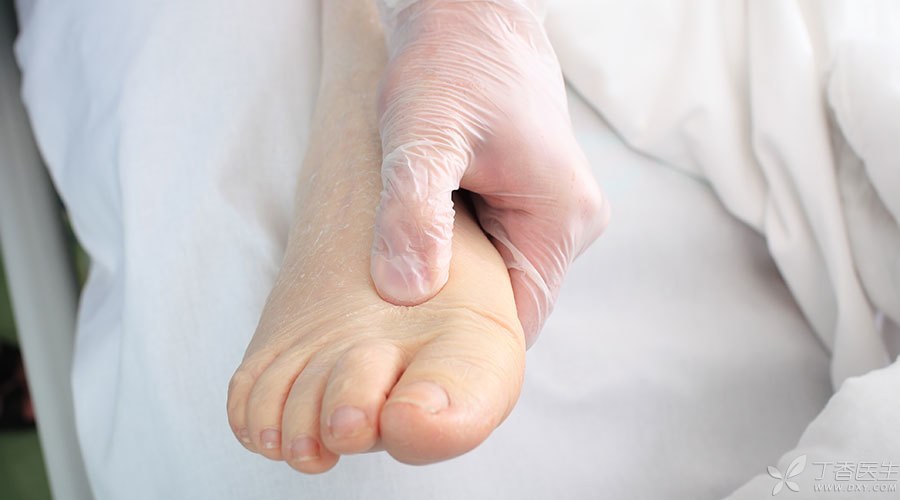Miss Liu has recently lost her appetite. She always feels bloated and accompanied by constipation. She thinks it is dyspepsia and goes to the Department of Digestive Internal Medicine.
After examination, the culprit was hypothyroidism. The digestive physician advised her to go to the endocrinology department.
After treatment, Miss Liu’s hypothyroidism was controlled and these symptoms disappeared.
Thyroid gland is the manufacturer of thyroid hormone. If it is produced too little, it is hypothyroidism. Too much production is hyperthyroidism.
Thyroid hormones can play a role in various [departments] of the body, such as the heart, liver, gastrointestinal tract, nervous system, etc. Abnormal thyroid function will definitely cause problems in the operation of relevant [departments].
Therefore, the symptoms of thyroid patients always involve several organs, with complicated and varied manifestations.
Originally, thyroid problems should go to endocrinology. However, patients are not doctors and cannot make accurate judgment on their physical condition. They are often flustered to see the heart and bloated to see digestion. Therefore, many patients are diagnosed in other departments and then referred to endocrinology.
Next, let’s count the thyroid diseases detected by [accident].

Department 1: Cardiovascular Internal Medicine
Main Symptoms:
Palpitation, shortness of breath, chest tightness, even chest pain, etc.
Analysis:
The thyroid gland acts on the heart and can produce a [positive energy].
In hyperthyroidism, excessive thyroxine and [positive energy] can accelerate the heartbeat, increase blood pressure and increase the burden on the heart, resulting in palpitation, shortness of breath, chest tightness and chest pain.
When hypothyroidism occurs, the [positive energy] obtained by the heart is insufficient, the cells of the heart will swell or even necrosis, and the outer coat of the heart-pericardium-will produce effusion, which will limit the contractile movement of the heart. In addition, hypothyroidism is easy to cause blood lipid increase, resulting in cardiovascular atherosclerosis and even coronary heart disease, thus causing the above symptoms.

Department 2: Department of Digestive Internal Medicine
Main Symptoms:
Hyperthyroidism: The number of stool increases, even diarrhea, and some vomit.
Hypothyroidism: loss of appetite, abdominal distension and constipation.
Analysis:
Thyroid hormone plays a role in gastrointestinal tract and can promote its peristalsis.
Excessive thyroid hormone accelerates intestinal peristalsis, enhances digestion and absorption function, causes increased stool frequency and even diarrhea, and often feels hungry.
Excessive thyroxine can also excite the vomiting center of the brain, damage the liver, cause electrolyte disturbance in blood, and cause discomfort such as nausea and vomiting.
On the contrary, if thyroid hormone is reduced, gastrointestinal peristalsis will slow down and gastric acid secretion will decrease, resulting in poor appetite, constipation, etc.

Department 3: Nephrology Department
Main Symptoms:
Edema of face and lower limbs, even edema of the whole body.
Analysis:
Body edema, the most likely to think of kidney problems. In fact, hyperthyroidism or hypothyroidism can also cause edema, especially the face, upper limbs and lower limbs.
Unlike edema caused by nephropathy, edema caused by thyroid problems is generally not sunken when pressed by fingers.
In addition, thyroid diseases are mostly related to autoimmune disorders, and edematous skin will become thicker or bark-like.

Department 4: Mental Psychology Department
Main Symptoms:
Hyperthyroidism: Anxiety, impatience, more words and more movements, paranoia, or depression, indifference.
Hypothyroidism: listlessness, lethargy, slow response, depression, and lack of interest in doing things.
Analysis:
Thyroid hormones can act on the nervous system and affect people’s emotions and moods.
Hyperthyroidism patients show excessive nerve excitement, such as excessive alertness, emotional instability, anxiety, irritability, excitement, insomnia and inattention. Serious cases will lead to deterioration of family relations.
Hypothyroidism patients show excessive nerve inhibition, such as lack of spirit, lack of interest, insufficient sleep, slow response, unhappiness, and serious cases will develop into depression.
However, some elderly hyperthyroidism patients have atypical symptoms due to organ function decline, and may have symptoms similar to hypothyroidism, which is medically called [apathetic hyperthyroidism].

Department 5: Ophthalmology
Main Symptoms:
Exophthalmos.
Analysis:
No matter hyperthyroidism or hypothyroidism, exophthalmos may occur, which is related to autoimmune disorders and genetic factors.
Accompanied by exophthalmos, there will also be a series of eye discomfort symptoms, such as eye pain, photophobia, lacrimation, vision loss, diplopia, eye congestion, etc.

Department 6: Gynecology
Main Symptoms:
Menstruation is advanced or delayed, menstruation volume increases or decreases, menstruation dripping or amenorrhea.
Analysis:
Abnormal thyroid hormone can lead to ovarian dysfunction, irregular menstruation, infertility, abortion and premature delivery.
Countermeasures: Learn to First Visit Yourself
Patients with thyroid abnormalities often have certain symptoms that are especially prominent. For example, some patients are especially prone to sweating, some patients have severe heartbeat, some patients’ eyes protrude first, and some patients’ necks swell first.
These particularly prominent symptoms often make people ignore other changes in the body, leading to the wrong department when going to the hospital.
If we can know more about popular science about thyroid diseases at ordinary times, we can quickly and accurately identify the problem.
